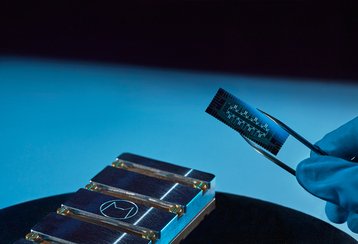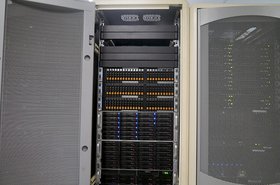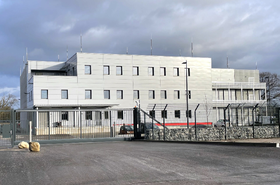Quantum startup Alice & Bob has received a €16.5 million ($17.8 million) innovation grant from France’s public investment bank, Bpifrance.
The French startup is the first company to receive all four innovation grants from Bpifrance and the funds will be used to finance a 36-month project that will see the company enhance the efficiency of its quantum stack, reducing manufacturing costs and time to market.
The deal has been endorsed by the office of Prime Minister Gabriel Attal.
Dubbed ‘Cat Factory’ after cat qubit technology, the project will bring together industry, government, and academic partners from ENS de Lyon and Mines Paris (PSL) to address a number of critical issues related to quantum computing, including nanofabrication, chip design and validation, digital tools, and electronic control.
The team is aiming to develop a new optimized architecture for fault-tolerant quantum computing by 2027 that will allow a reduction in the number of control lines per cat qubit from 4.5 to 2, and a reduction in the readout lines per cat qubit from 1 to 0.2.
In order to achieve this, the Quantum Processing Unit (QPU) architecture will be updated to increase the number of analog ports from 60 to 18 per rack, and increase the number of control lines per cryostat from 200 to 2000.
“Quantum computing algorithms require hundreds of logical qubits, which translates to thousands to millions of physical qubits,” said Florent Di Meglio lead on the project at Mines Paris, PSL. “Cat Factory aims to reach 100 logical qubits with only 3 cryostats, a dramatic reduction in the hardware needs for running a useful quantum computer.”
Theau Peronnin, CEO of Alice & Bob, added: “We are honored to be entrusted with the task of making quantum computing useful earlier. Our plan, centered around cat qubits, addresses the real challenges of quantum computing headfirst, enabling massive savings in energy and end-user costs.”
Founded in 2020, Alice & Bob has already raised €30 million across six funding rounds to develop a fault-tolerant quantum processor.
Earlier this month, the company was given access to €500 million in funding after being invited by the French Ministry for Armed Forces to participate in the country’s PROQCIMA initiative.
Those project participants will work to deliver a universal fault-tolerant quantum computer demonstrator with 128 logical qubits by 2030, and its industrialization into a 2048-logical-qubits computer by 2035.







